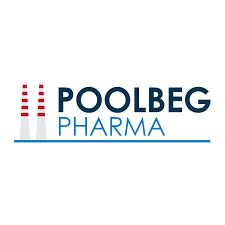Sponsored Editorial
By Elric Langton | 2 January 2025
It has been a while since we discussed Poolbeg Pharma, as the stats demonstrate there was no interest in the jam being served up, and I guess many bailed soon after the shares breached the IPO price for a nice 20-30% profit. I discuss it today because it allows some to combine two stories of concern.
The proposed merger between Poolbeg Pharma and HOOKIPA Pharma paints a telling picture of London’s beleaguered Alternative Investment Market (AIM)—a market once heralded as the launchpad for entrepreneurial AIM-Casino. The deal, valued at approximately £25 million below Poolbeg’s pre-announcement market capitalisation, shines a light on the deeper cracks in the UK’s small-cap casino.
AIM Under Siege
The UK’s equity markets have endured a rough ride. In 2024, London’s primary market for fledglings and ambitious small-caps saw 88 Companies delist, while a paltry 18 braved the IPO waters—resulting in the most significant net outflow since 2009. AIM, traditionally a haven for ambitious startups, now appears to be losing its lustre. This isn’t just about individual Company struggles; it’s a stark indictment of the market’s diminishing ability to nurture innovation-driven businesses. We have, of course, discussed our concerns before.
Poolbeg Pharma’s story mirrors the broader plight of AIM-listed biotech firms. Spun out of hVIVO in 2021, both Companies initially rode the wave of pandemic-era biotech optimism. Yet, like many of its peers, the Company has struggled to transition from promise to performance, particularly in securing robust partnerships with big pharma.
The Merger Mechanics
The Company has not been shy about suggesting it belongs on the Nasdaq. Still, today’s potential merger announcement with HOOKIPA Pharma, a Nasdaq-listed immunotherapy specialist, is proposing a reverse takeover of Poolbeg has gone down like a led balloon. The deal promises synergies in early-stage drug development and potential access to the deeper capital pools of US markets. However, the details suggest Poolbeg’s future as a standalone entity is in jeopardy and the market isn’t seeing value.
To be clear, I have not investigated HOOKIPA in any depth and perhaps won’t even bother.
Post-merger, Poolbeg will delist from AIM, morphing into a private subsidiary of HOOKIPA. Under the terms, Poolbeg shareholders would receive 0.03 HOOKIPA shares for each Poolbeg share, collectively holding 55% of the combined entity before a planned $30 million fundraising round. Poolbeg’s stake would shrink to about 40% following this dilution-heavy fundraiser.
The combined entity will boast a portfolio including HOOKIPA’s multi-KRAS targeting HB-700 and Poolbeg’s Phase 2-ready POLB 001. While this pipeline appears promising, the market’s verdict has been anything but enthusiastic.
Investor Reaction
The announcement sent Poolbeg shares tumbling by 40%, a clear signal that investors struggle to see value in holding a reduced slide of HOOKIPA. This pessimism is set against a backdrop of persistent outflows from UK equity funds, which have seen assets under management plummet from £280 billion in 2017 to £200 billion in 2024. Investors seem to be voting with their feet, favouring global and US equity strategies over the stagnating UK market.
Moreover, AIM’s struggles are compounded by lingering scepticism surrounding biotech firms that thrived during the pandemic. Poolbeg and its parent, hVIVO, were once darlings of newsletters like the Small Company Champion and Lemming Investor Research Newsletter. Still, both have battled perceptions of overhyped potential in a post-pandemic world.
Despite the bleak sentiment, insider buying offers a glimmer of confidence. CEO Jeremy Skillington and Chairman Cathal Friel have been active buyers of Poolbeg shares, signalling their faith in the company’s prospects. Notable purchases include:
21 February 2024: Skillington acquired 154,764 shares at 10.8p (£16,714).
19 February 2024: Friel bought 830,000 shares at 11.68p (£96,944).
5 October 2022: Skillington added 718,733 shares at 4.78p (£34,355).
If completed, the merger marks a watershed moment for Poolbeg, shifting its centre of gravity from London’s AIM to Nasdaq’s US-focused markets. This transition may offer access to a deeper investor pool and diversified pipeline prospects but further illustrates AIM’s waning relevance.
As more Companies flee London’s exchanges, the question looms: Can AIM continue to serve as a cradle for entrepreneurial ventures? Or is its decline indicative of a broader malaise in the UK’s capital markets?
For Poolbeg, this deal may be a lifeline. For AIM, it feels like another nail in the coffin. Whether this signifies the end of an era or the dawn of a new paradigm remains to be seen. One thing is clear: Poolbeg’s move could offer a cautionary tale—or a template—for others navigating AIM’s choppy waters.
Opinions
We offer no advice or solicit the purchase of shares in any companies we discuss. However, shares go up and down in value, making your financial situation risky.
The views and opinions contained within these editorials are for research purposes and are the opinions of the author(s). We aim to be as accurate as possible but stress you should also perform your research and never act solely on the contents of these editorials.






